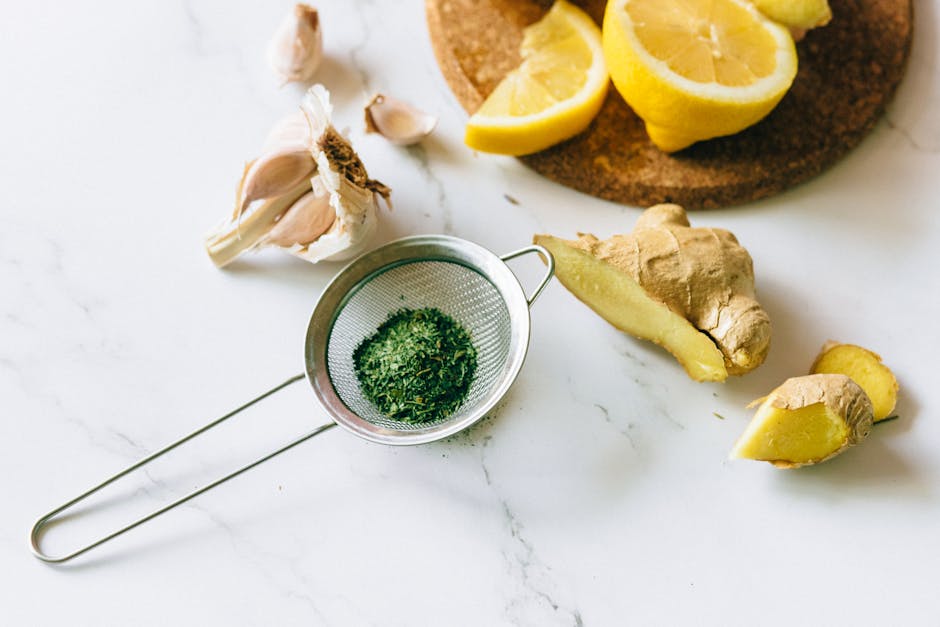Boosting Your Immune System: A Comprehensive Guide
Our immune system is our body’s defense mechanism against harmful pathogens, viruses, and bacteria. A strong immune system not only helps us fight off illnesses but also plays a crucial role in maintaining overall health and well-being. In today’s fast-paced world, where stress, pollution, and unhealthy lifestyle choices are rampant, it’s more important than ever to take proactive steps to boost our immune system. In this article, we will explore the various ways in which you can strengthen your immune system, from lifestyle changes to dietary habits, and everything in between. So, let’s delve into the world of immune-boosting strategies and unlock the secrets to a healthier, more resilient you.
The Role of Diet in Immune Health

When it comes to boosting your immune system, one of the most important factors to consider is your diet. The foods you eat play a significant role in supporting your body’s immune response. Antioxidant-rich foods such as fruits, vegetables, nuts, and seeds help protect your cells from damage and strengthen your immune system. Vitamin C, found in citrus fruits like oranges and lemons, is known for its immune-boosting properties. Zinc, another essential nutrient for immune health, can be sourced from foods like lean meat, poultry, seafood, and legumes.
Eating a well-balanced diet that includes a variety of nutrient-dense foods is key to supporting your immune system. Incorporating probiotics, found in fermented foods like yogurt and kimchi, can also help maintain a healthy gut microbiome, which is crucial for immune function. On the other hand, processed foods, sugary beverages, and excessive amounts of alcohol can weaken your immune system and make you more susceptible to infections.
The Impact of Exercise on Immunity

Regular physical activity is not only beneficial for your overall health but also plays a significant role in boosting your immune system. Exercise helps improve circulation, reduce inflammation, and promote the release of endorphins, which can lower stress levels and enhance immune function. Moderate-intensity activities like brisk walking, cycling, or swimming can have a positive impact on your immune system.
Engaging in regular exercise has been shown to reduce the risk of chronic diseases and infections. However, it’s essential to strike a balance as excessive or intense exercise can have the opposite effect and weaken your immune system. Aim for at least 150 minutes of moderate exercise per week, along with strength training exercises to support your immune health.
The Importance of Sleep for Immune Function

Sleep is often underrated when it comes to immune health, but it plays a crucial role in supporting your body’s defense mechanisms. During sleep, your body repairs and regenerates cells, and your immune system produces cytokines, proteins that help combat infections and inflammation. Chronic sleep deprivation can suppress immune function and make you more susceptible to illnesses.
Adults should aim for 7-9 hours of quality sleep each night to support optimal immune function. Establishing a bedtime routine, creating a comfortable sleep environment, and limiting screen time before bed can help improve the quality of your sleep. If you struggle with sleep issues, consider practicing relaxation techniques like meditation or deep breathing exercises to promote restful sleep and enhance your immune system.
The Role of Stress Management in Immune Resilience

Chronic stress can have a detrimental impact on your immune system, as it triggers the release of cortisol, a hormone that suppresses immune function. Finding healthy ways to manage stress is essential for maintaining a robust immune response. Practices like yoga, meditation, deep breathing, and mindfulness can help reduce stress levels and improve immune resilience.
Incorporating stress management techniques into your daily routine can have far-reaching benefits for your overall health and well-being. Spending time in nature, engaging in hobbies you enjoy, and connecting with loved ones can also help lower stress levels and support your immune system. Remember, a healthy mind is just as important as a healthy body when it comes to boosting your immune system.
The Impact of Hydration on Immune Function
Staying hydrated is crucial for supporting your immune system, as water plays a vital role in various bodily functions, including the transport of nutrients and the elimination of toxins. Dehydration can weaken your immune response and make you more susceptible to infections. Aim to drink at least 8-10 glasses of water per day, more if you engage in vigorous exercise or live in a hot climate.
In addition to water, herbal teas, green tea, and coconut water can also contribute to your daily fluid intake. Limiting your consumption of sugary beverages and caffeinated drinks is important, as they can dehydrate your body and compromise your immune health. Remember, staying hydrated is a simple yet effective way to boost your immune system and support your overall well-being.
The Role of Supplements in Immune Support
While a well-balanced diet is the best way to obtain essential nutrients for immune health, supplements can also play a role in supporting your immune system. Vitamin D, known as the “sunshine vitamin,” is crucial for immune function and can be sourced from sunlight exposure and dietary sources like fatty fish, egg yolks, and fortified foods. However, many people have vitamin D deficiencies, especially during the winter months, making supplementation necessary.
Other supplements that may support immune health include vitamin C, zinc, probiotics, and echinacea. Before starting any new supplement regimen, it’s essential to consult with a healthcare professional to determine the appropriate dosage and ensure compatibility with any existing medications or health conditions. Remember, supplements should complement a healthy diet, not replace it.
Expert Opinions on Immune-Boosting Strategies
We reached out to Dr. Sarah Johnson, a renowned immunologist, for her insights on effective immune-boosting strategies. According to Dr. Johnson, “Maintaining a healthy lifestyle that includes a balanced diet, regular exercise, adequate sleep, and stress management is key to supporting your immune system. Additionally, staying up to date on vaccinations, practicing good hygiene, and avoiding exposure to harmful toxins can help reduce your risk of infections.”
Dr. Johnson also emphasized the importance of listening to your body and seeking medical advice if you experience persistent symptoms or have underlying health conditions. By taking a proactive approach to your health and well-being, you can strengthen your immune system and enhance your overall quality of life.
Common Misconceptions About Immune Health
There are several misconceptions surrounding immune health that can lead to confusion and misinformation. One common myth is that taking high doses of vitamins and supplements can prevent illness. While certain nutrients are essential for immune function, excessive amounts can be harmful and may not provide additional benefits.
Another misconception is that natural remedies are always safe and effective for boosting the immune system. While some natural remedies like honey, ginger, and garlic have immune-boosting properties, it’s essential to consult with a healthcare professional before using them, especially if you have underlying health conditions or are taking medications.
FAQs About Immune-Boosting Strategies
Q: Can I boost my immune system overnight?
A: Immune health is a long-term endeavor that requires consistent effort and lifestyle changes. While certain strategies like staying hydrated, getting enough sleep, and managing stress can have immediate benefits, it may take time to see significant improvements in your immune function.
Q: Are there specific foods that can boost my immune system?
A: Yes, foods rich in antioxidants, vitamins, and minerals like fruits, vegetables, nuts, seeds, and lean protein can support your immune system. Including a variety of nutrient-dense foods in your diet is key to maintaining optimal immune health.
To Wrap Things Up
Boosting your immune system is not a one-size-fits-all approach but rather a holistic journey that involves incorporating various lifestyle changes and habits into your daily routine. By focusing on a well-balanced diet, regular exercise, quality sleep, stress management, hydration, and supplementation when necessary, you can support your immune system and enhance your overall health and well-being.
Remember, your immune system is your body’s first line of defense against illnesses and infections, so it’s essential to take proactive steps to strengthen it. By making small but meaningful changes to your lifestyle, you can build a resilient immune system that will help you stay healthy and thrive in the face of challenges. Here’s to a stronger, healthier you!




